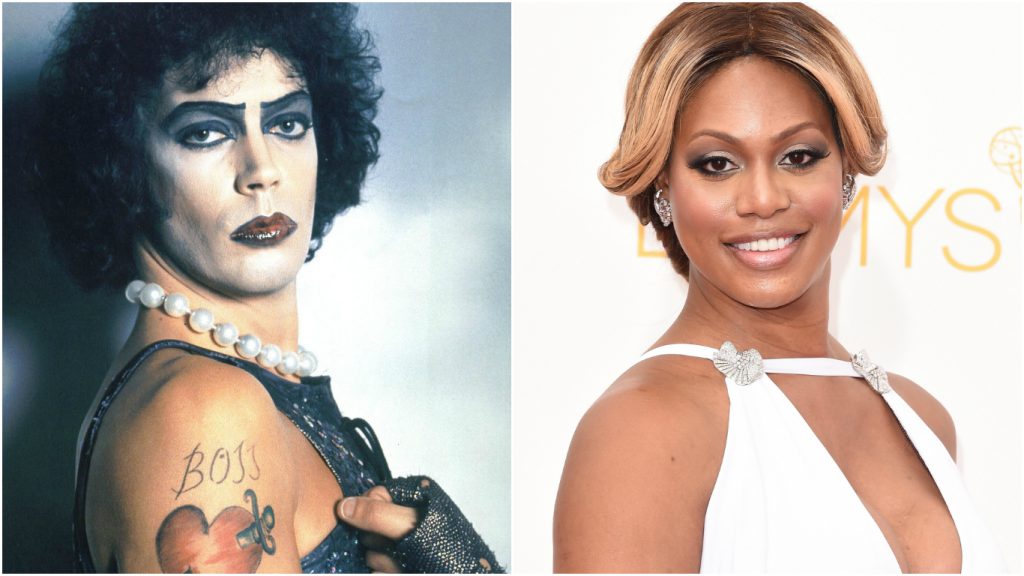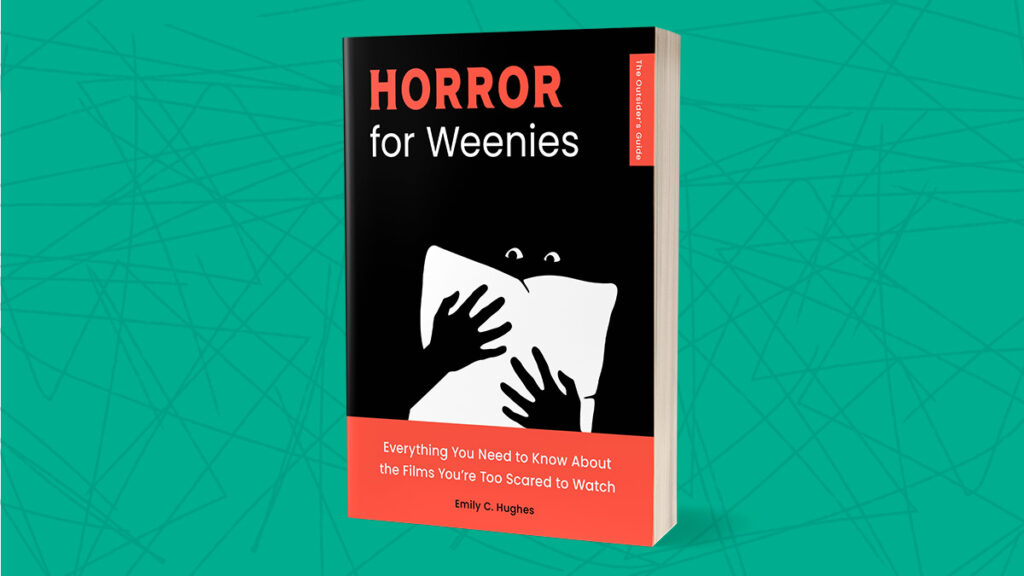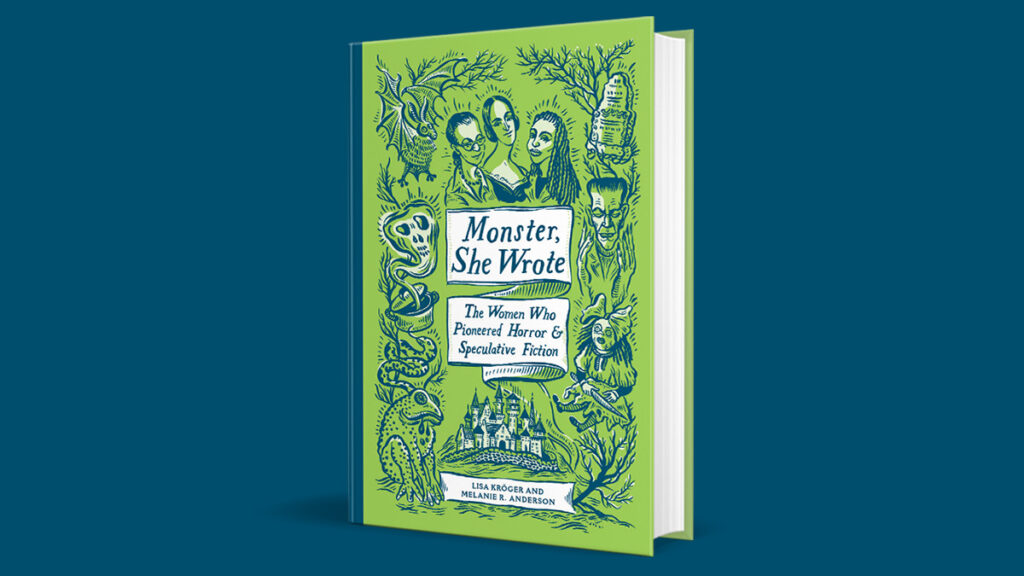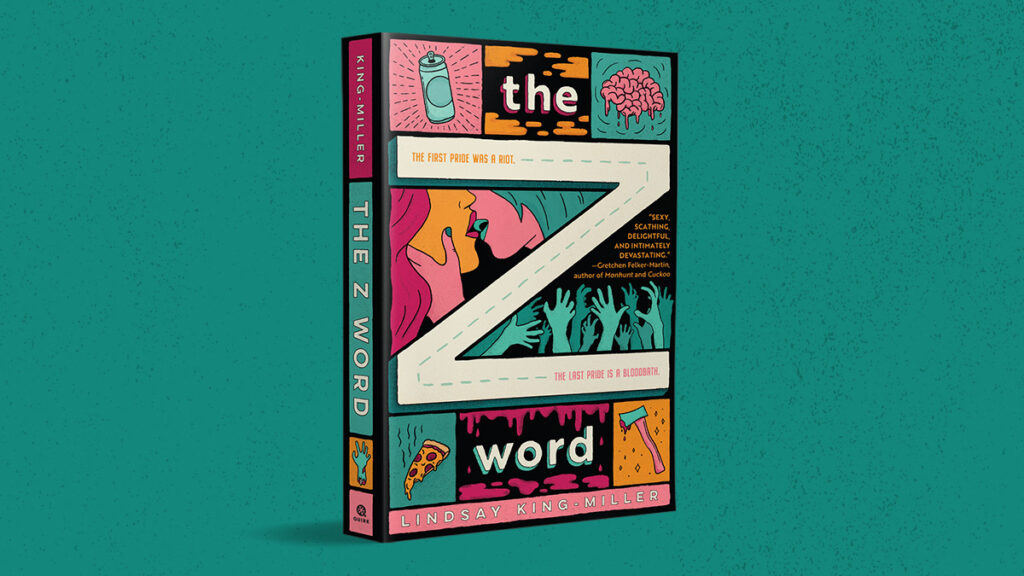The Smarty Pants Guide to Watching Rocky Horror
And I did. Again and again. There I found freaks and deviants. Strung-out fiends in gobs of eye make-up and lip gloss. And I loved it, somehow. Every salacious second. From the “the back row-oh-oh” to the front, where the mix of sweat and mascara and spit from the live performers showered down like rain on Brad and Janet.
Luckily, I had an umbrella. Everyone did.
A college girlfriend “de-virgined” me (and if you, dear reader, are one yourself, the aforementioned link is a good place to start in preparation for FOX’s October 20th televised re-make) at a small South Jersey theater, but I had actually first wandered into the movie when it was released on VHS in 1990.

I was twelve. I thought it was an old-school horror movie, so I watched it…with my parents!!!
I know. I left the room, and we never spoke of it again. But I sat up that night wondering, “what the hell did I just watch?” More importantly, “did I…gulp…like it?”
In high school, it became a kitschy, theater dork “thing” to know about. In pre-internet America, “knowing stuff” was actually valued, and a hallmark of nerd culture.
Still, “knowing” only vaguely prepared me for my first, live midnight showing. As a straight male from the New York City area, Rocky was fun. It was a place to play pretend. But for so many others, especially otherwise closeted or shielded members of the LGBTQ communities, a Rocky showing was the only place where they didn’t have to pretend.

When Rocky gets remade by FOX tonight, on the heels of the ratings and critical success of Grease Live!, they will do a huge send-up of the iconic Rocky opener (I hope), an allusion-heavy homage to science fiction/horror drive-in flicks. Everything from King Kong to War of the Worlds gets lovingly sent-up in Rocky’s title credits.
But we want to take you deeper. “Give you over to ABSOLUTE (literary) pleasure.” So, for your approval, and to impress your friends on October 20th, here are more literary Rocky allusions. These songs may be lesser known, but the literary and cultural roots run deep:

In this double entendre sing-a-long, Dr. Frank N Furter (Frankie), the mad scientist protagonist, the Sweet Transvestite from Transexual, Transylvania, has just created life…in the Frankensteinian way. In song, he alludes to a staple of old-school comic books: the Charles Atlas workout kit. Five generations of skinny little nerds were subjected to this onslaught of ultra-masculinity while trying to enjoy the simple pleasure of a Green Goblin yarn or ogling Jean Grey with Cheetos stained fingers.
Charles Atlas promoted the same, wimp-come-stud vignette:
-Comic book fanboy heads into sunlight and takes a trip to the beach, for some odd reason.
-Once there, his pale wimpiness gets called out and mocked by some handsome bully.
-The monstrous muscle head doesn’t stop with his hurtful words (“Hey skinny, your ribs are showing”). He also pushes our wimpy hero to the ground, and as Frankie sings, kicks “sahhhhh-nd in his face.” Hence writing the premise of every 80s movie ever!
-A bevy of buxom blondes are watching this, btw. And they think it’s a hoot, so they take hunky guy by the arms and reward him for his bullying by doting over him. Together they laugh and laugh, and presumably go off to have sex and create more equally beautiful and hateful humans.
-Wimpy guy gets up with a plan. “Never again,” he thought bubbles. He brushes himself off, works his paper route for two weeks to save ten bucks, finds Charles Atlas’s ad, clips it, chucks the comic book, fills out the coupon with a pen, pesters his mom for an envelope, addresses the envelope, return-addresses it, then remembers he needs a stamp, re-pesters his mom for one of those, licks it, inflates the tires on his bike, rides to the closest mailbox, sends it off, and…in six to eight weeks…BOOM! It’s all chin-ups and pin-ups.

And you thought the 80s were adorable, huh? And. Kids. Bought. It. They put their trust and their money in Mr. Atlas.
Remember, these were different times. Violence begot violence in a “boys will be boys” culture. Parents were different. Schools were different. Boys did boy things. Girls baked them snacks. And adults of all stripes (clergy and neighbors and gym teachers) were allowed to point out inconsistencies in prescribed gender roles without remorse.
“Gee, Dave, your son really runs like a girl.”
“Ahh Jane, why not let your hair grow out like the pretty girls in class?”
Manliness was taught. Protected. And culturally revered without substitute.

Charles Atlas promised to make you a man, i.e. physically torturing you into a chiseled, rock-hard meat-head capable of dishing out your own brand of public humiliation. In Rocky, Frankie flips the script. He steals right from Atlas’s vernacular: “…in just seven days, I can make you a mah-ah-ah-ah-ahnnnnn.”
But Frankie is referring to make in the Mary Shelley sense. No workouts or fighting. Just good ol’ mad science. The geek builds the monster…and the monster is a muscle man. Frankie subverts, mocks, triumphs and succumbs to the standards of masculinity and gender appropriation…all at the same time.
Gender-bending is more than fishnets. It’s complicated commentary on a complicated subject, referencing little-discussed contradictions and connections between ultra-masculine imagery, homo-eroticism, sex and misogyny. These points were of a higher relevance in 1973, when American culture was experiencing an especially hirsute foray into manly man-ishness. One brand of misogyny (think Norman Rockwell-esque images of subservience and domestication from the 50s & 60s) was being replaced by another (think the hyper-sexualization and objectification of womanhood and femininity we still see today).
This is the world Frankie grapples to change.
Luckily, today, this type of unproductive machismo is reserved only for Old Spice commercials & United States presidential debates.
For more on this, check out the excellent work of documentarian Byron Hurt, who explores such issues in the hyper-masculine world of hip-hop and sports (Say what you want about Kanye now, but in the day, he was outspoken on curbing hate-speak, especially speech aimed at gender, within his art).
And don’t worry, straight guys got their own version of Frankie’s fantasy from John Hughes a decade later.

What does Rocky, the character, the chiseled, bewildered Frankensteinian monster, have in common with William Shakespeare and John F. Kennedy? Besides killer abs, of course? All three have made allusion to the ancient Greek tale of Damocles. In it, Damocles thinks his King Dionysius has a pretty sweet gig…what with the gold, the servants, the luxury. Dionysius agrees to give Damocles a taste of the honey (sorry, Smokey) by switching places with him.
But Dionysius is a sucker for symbolism, and during the Freaky Friday, he has a sword hanging over Damocles’s head, tethered to nothing but “the finest horse-tail hair.” Damocles is too scared to enjoy himself, and holy Peter Parker, he learns that with great power comes…well, a pretty good chance of getting your head lopped off.
Henry IV was conjuring Damocles when he told us “uneasy lies the head that wears the crown.” Nikita Kruschev and Kennedy both used the allegory to illustrate the perils of power at the onset of the Cold War.
Rocky, the eponymous monster, in his opening words, assures us “true beauty” is “a pretty big downer.” Like Shelley’s Monster, Rocky is doomed from the start. Like Shelley’s duo, neither Frankie nor Rocky avoid the sword. They cannot escape the sin of creation.
If only Shelley’s Monster looked equally fetching in fishnets.

“Rose-tinted” means optimistic or positive, even when reality may be suggesting the opposite. So it’s akin to putting one’s head in the proverbial sand (ugh…AGAIN with the sand!).
Its origin harkens back to 17th Century Puritan texts, where the phrase is used as metaphor for the fallacies of ungodly temptation. A Google search for etymology uncovers a bevvy of 19th Century science articles, as well.
The most notable 20th Century literary use is by L. Frank Baum. He uses the metaphor to prove The Emerald City is “a humbug.” Dorothy and her friends are told to wear emerald glasses to protect them from the “brightness” of the brilliant city. In reality, the city is “no more green than any other” (from The Wonderful Wizard of Oz).

Frankie may also be a humbug. Or maybe not. It’s up to the viewer. *SPOILER ALERT* But he does fail. Riff Raff and Magenta mutiny, and Frankie’s deemed “too extreme” for “Earth.” Ahh, the line between amped up, murderous sexual despot and sexual revolutionary is a thin one, indeed.
Interestingly, in Rose Tints, Janet exclaims, “It’s a blast that Frankie’s landed/ his lust is so sincere.” This oxymoron may be the heart of the film. Lust and sincerity don’t often occupy the same level of cultural cachet. Sincerity, after all, is a tricky emotion. Acknowledging it often immediately devalues it.

Ask that other Halloween cultural denizen: Linus Van Pelt. Is the folly of The Great Pumpkin ever more obvious than when Linus yells, “next year, I’ll find a pumpkin patch that’s real sincere!”? Isn’t calling a pumpkin patch “sincere” the same as calling a restaurant a “best kept secret” on Yelp?
In Frankie’s plot to liberate Earth from the restraints of sexual categories and identifications, one read of the film posits, Frankie is, at least, sincere. When he imagines an audience for his swan song, in the under-rated, Broadway-standard “I’m Going Home”, they are a tuxedoed, stodgy, Bourgeoise-looking group. The Mainstream—embodied.
And they are entranced. They embrace Frankie. In that way, at least, Frankie’s mission is less about deviance for deviance-sake, and more about deviance as a stride toward stripping away sexual taboo. Do I dare suggest he just wants to be understood?

While America has changed since 1973, it has not completely outgrown a need for characters like Dr. Frank-N-Furter. We have a long climb ahead in terms of gender and sexual equality. You can interview Billy Bush about that.
In fact, in terms of gender, Rocky may be more relevant now than it was forty years ago. Schools consider gender neutral facilities. Pop culture and science converge to challenge perceptions about whether gender is constructed socially or determined biologically.
Rocky will play on major network TV tonight. It will star Laverne Cox in Tim Curry’s role. Cox is a trans woman of color who is already an enormous, Emmy-winning star. It’s certainly a different world than the one Curry played to (he, himself, will play The Narrator). Who knows how today’s world will view the new Rocky. Probably with only a passing interest.
But the world still needs Rocky. The world still needs more “being” than “dreaming.”
Cox, an advocate of transgender issues, speaks widely on equality and social change. And while it will remain to be seen whether or not she can deliver the goods in this iconic role, one thing’s for sure:
With people like Cox out there, protecting the world from sand-kicking bullies, Charles Atlas can kiss our “hot patootie!”
Join Joe as he live-tweets RHPS on Fox, October 20th @JoeCostal #RockyHorrorFOX.

Joe Costal
Joe Costal knows too much about stupid Halloween songs. His writing has appeared in dozens of magazines and journals, most recently Philadelphia Stories and The Maine Review. His poetry is included in Challenges for the Delusional II by Diode Editions. An excerpt from his novel is forthcoming in Painted Bride. Joe teaches writing at Stockton University. Visit him online at joecostal.com.




